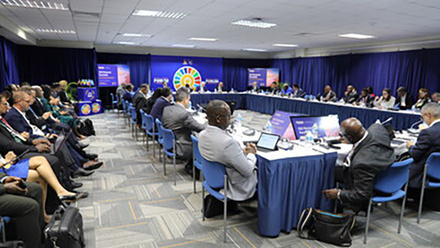Climate scientists 'ignoring' cities in Africa and Asia
A global stocktake of urban climate change research highlights an imbalance in climate science.

Studies underrepresent rapidly growing cities in Asia and Africa, according to the Universities of Sussex, UK, and Bern in Switzerland.
Out of nearly 20,000 spatially specific case studies, only a tiny fraction address these rapidly urbanising areas, despite their importance for climate mitigation and adaptation.
The study reveals less than one in 12 African cities is covered by more than one piece of climate change research, with many absent from the evidence base altogether.
Across much of South and South East Asia, coverage is similarly sparse.
While cities in Europe, North America and Oceania (historically with slower growth rates and well-established infrastructures) are more frequently studied.
Therefore, the fastest-growing cities are least likely to be studied.
The authors believe this skew may be rooted in academic geography, with researchers more likely to study places near where they live or those they are institutionally connected to.
Without better representation of fast-growing cities, global science assessments, such as those by the IPCC, risk being based on biased evidence.
Additionally, technology-focused solutions, such as smart energy grids, radiative cooling, or efficient public transport systems, are underrepresented in assessments, despite showing promising benefits in the wider research.
The researchers have published an interactive evidence map to help scientists, policymakers and city planners access relevant research more easily.
The global stocktake of urban climate change research can be found online.
Describing the imbalance, Professor Felix Creutzig, Chair of the Bennett Institute at the University of Sussex, says, ‘This is a major blind spot…These cities are where the bulk of future emissions and climate vulnerabilities will be concentrated. Yet they’re missing from our global knowledge bank.'
It is in this context that Oxford Saïd alumni won UK Government funding to deliver clean renewable energy to communities in Nigeria
The funding has been won by a consortium, led by a Saïd Business School, University of Oxford alumni – for a project which will see diesel and petrol generators in Nigeria replaced with affordable, clean energy sources. This is a £700,000 project, for which the UK is providing 70% of the funding.
The project will bring a network of storage-integrated, solar/wind hybrid systems across the African nation, using wind turbines, solar panels and thermal storage at cold storage sites.
World Bank research has shown that 85 million Nigerians (43% of the population) do not have access to grid electricity, making Nigeria the country with the largest energy access deficit in the world.











